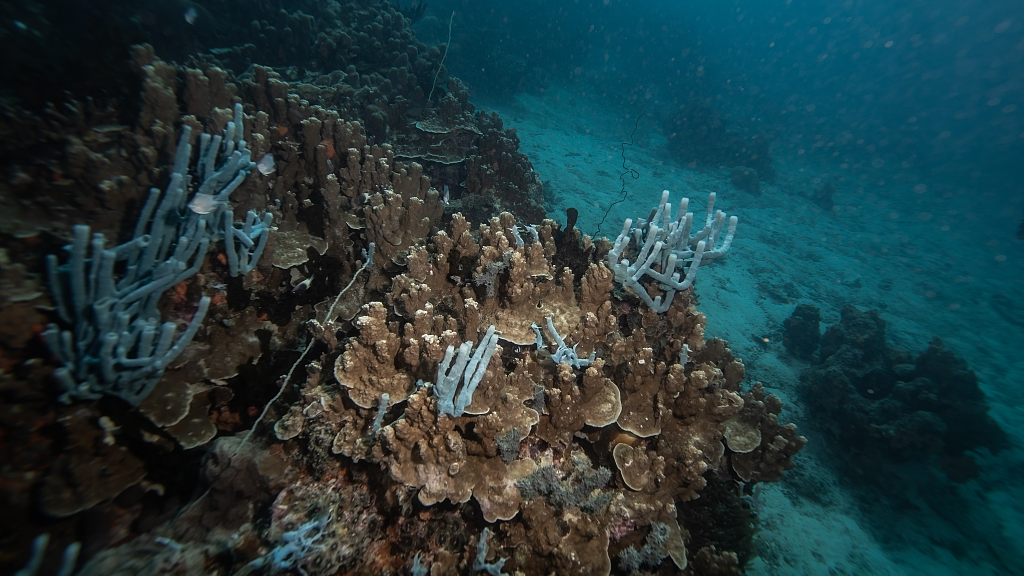In a recent study published in Global Change Biology, concerns are growing for the future of corals in the face of climate change-driven ocean warming as predatory sea stars display remarkable resilience to heat wave conditions. The research, led by experts from the School of Life and Environmental Sciences and Marine Studies Institute at the University of Sydney, sheds light on the thermal tolerance of juvenile keystone coral predators, known as the crown-of-thorns sea star (COTS, Acanthaster sp.), and their potential impact on coral reefs. This study highlights a critical concern for the survival of corals as the oceans experience increasing temperatures and more frequent extreme heatwaves.
The researchers delved into the intricate relationship between the thermal tolerance of herbivorous juvenile COTS and the degree heating weeks (DHW) model, a predictor of coral bleaching and mass mortality. These insights are vital for understanding the dynamics of coral ecosystems under the looming threat of climate change.
The study revealed that young herbivorous COTS exhibit a remarkable ability to withstand high-temperature conditions when compared to their adult coral prey. As the weeks of increased warmth persist, the metabolic rates and activity levels of these juveniles rise significantly. Through independent acute temperature trials, the researchers determined that the upper thermal limit for these juveniles falls within the range of 34 to 36 degrees Celsius. This increased thermal tolerance suggests that, in a warmer environment, juvenile COTS may expand their habitat within coral rubble, capitalizing on coral loss. These juveniles could potentially remain herbivores for extended periods, patiently waiting for living coral to recover before transitioning into coral predators. This dynamic presents a unique challenge for coral reefs that are already under threat from climate change.
As ocean temperatures continue to rise and heatwaves become more frequent, marine populations are adapting to favor stress-tolerant species. Lead author Maria Byrne, a professor of marine biology, remarked, “We found juvenile crown of thorns starfish can tolerate almost three times the heat intensity that causes coral bleaching, using a model that measures temperature over time.” This newfound heat resilience allows juvenile COTS to endure for as long as six years, patiently waiting for the reef to recover from previous coral bleaching events before transitioning into coral-eating predators, perpetuating a cycle that poses significant risks to vulnerable reefs.
The crown-of-thorns sea star, characterized by its venomous and needle-sharp spines, is a native species to the Great Barrier Reef, and its outbreaks have been a major contributor to coral loss since 1962. Currently, the Great Barrier Reef is facing its fourth COTS outbreak, which threatens to devastate up to 90 percent of the corals on the affected reefs.
As the tropical Indo-Pacific ocean warms, waiting-stage juvenile COTS stand to benefit from the expansion of rubble habitat created by coral bleaching and mortality. This, in turn, leads to an increase in their population over time, adding to the complexity of the issue at hand.
Co-author Matt Clements, a PhD student, weighed in on the matter, saying, “Loss of natural predators due to overfishing and the build-up of nutrients in the water have been suspected to contribute to outbreaks of crown-of-thorns starfish.” He further emphasized, “Now we have evidence that bleaching-induced coral mortality could aid the seafloor-dwelling juveniles, leading to subsequent large waves of adults in reefs, which exacerbate the ravages of climate change.”
This study underscores the pressing need for conservation efforts, particularly in reef management and the mitigation of climate change impacts, to protect the delicate balance of marine ecosystems. With coral reefs already facing numerous challenges, the resilience of juvenile COTS to heatwaves presents a unique challenge that scientists, policymakers, and environmentalists must address to safeguard these vital underwater ecosystems in the face of climate change.
Read More:
